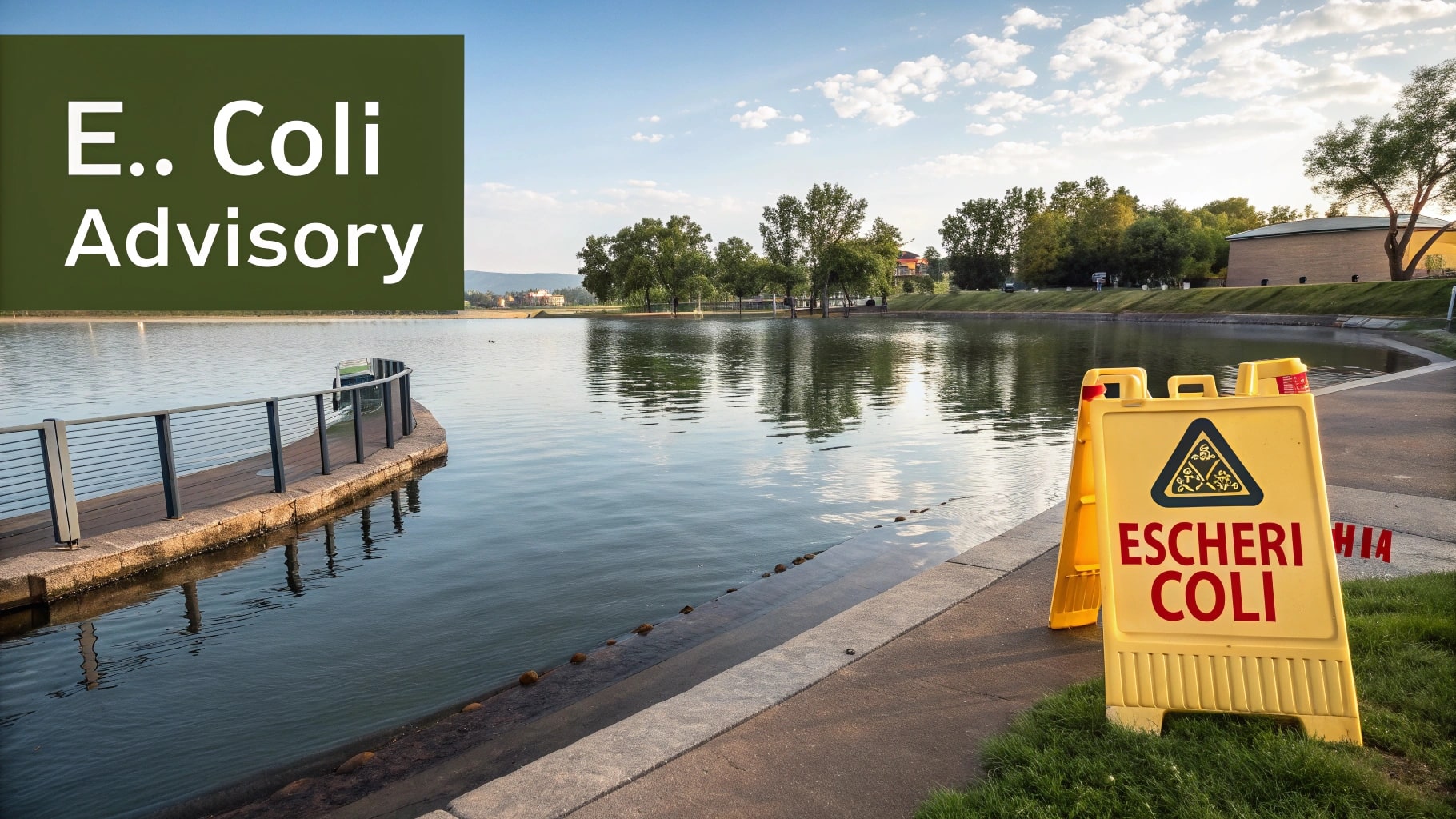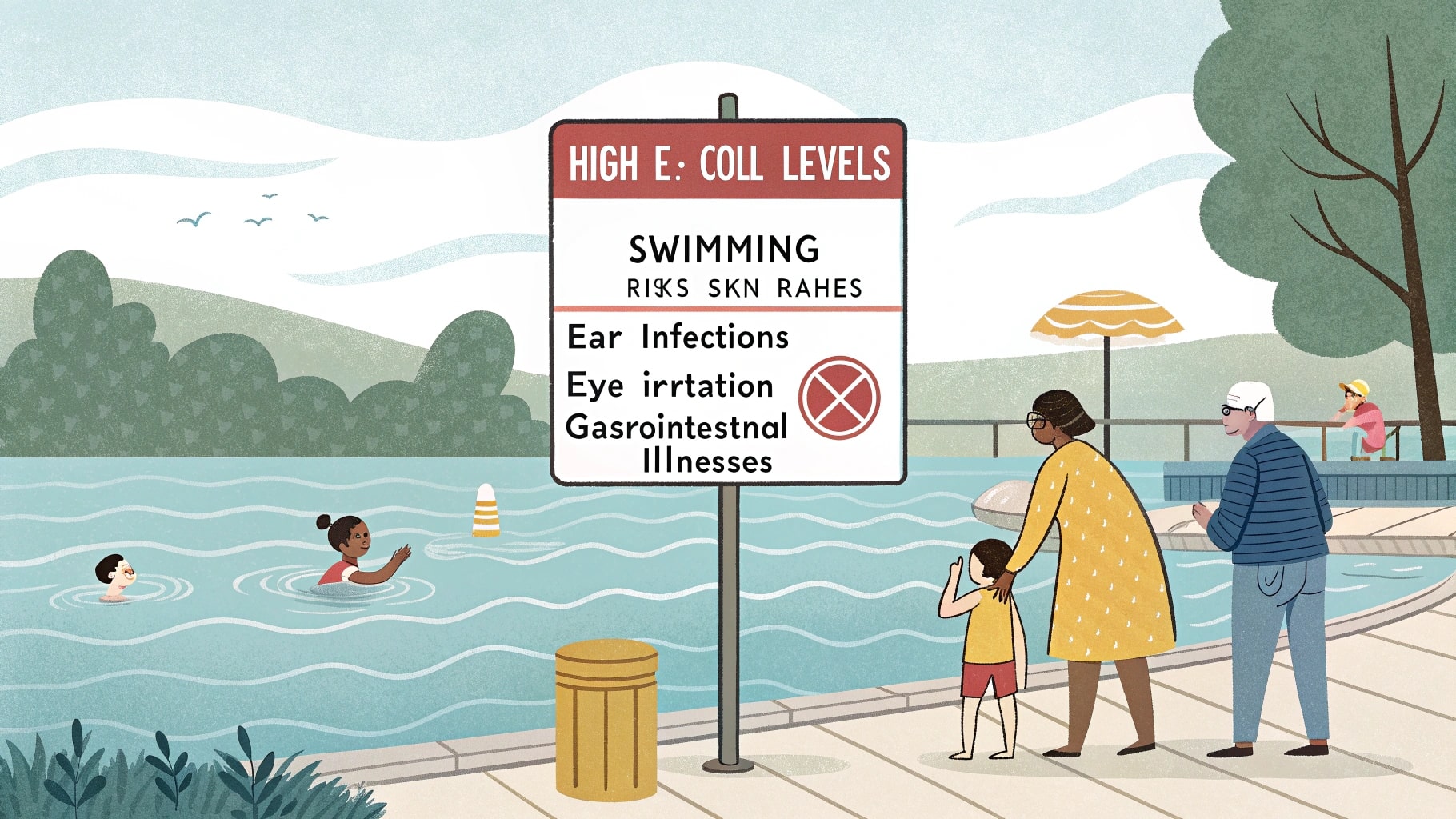E. coli Geist Reservoir Advisory: Safety, Causes, and Updates
Geist Reservoir, located in Hamilton County, Indiana, is a popular place for boating, fishing, and family recreation. Every summer, thousands of people visit the reservoir and surrounding parks to enjoy swimming and water-based fun. However, in recent years, the area has also faced concerns about E. coli contamination. Health departments have issued advisories warning the public to be careful while using the water.
The keyword “E. coli Geist Reservoir Advisory” has become an important topic because it directly affects the health and safety of residents and visitors. Understanding what E. coli is, how it reaches the reservoir, and what actions people should take is necessary for enjoying the lake responsibly. This article explains everything you need to know, from the latest testing results to preventive tips that protect families and the environment.
What is an E. coli Advisory?
An E. coli advisory is a public health warning issued when E. coli bacteria levels in water become too high. E. coli is short for Escherichia coli, a type of bacteria usually found in the intestines of humans and animals. While most strains are harmless, some can cause serious stomach illnesses, including diarrhea, cramps, and even kidney damage in vulnerable individuals.

When water testing shows levels higher than 235 colony-forming units (CFU) per 100 milliliters of water, health officials consider it unsafe for recreational use. At Geist Reservoir, advisories are issued to warn swimmers, boaters, and fishermen to take precautions. This does not always mean the entire reservoir is closed, but it does mean people should be more careful while using the water.
Recent E. coli Testing Results at Geist Reservoir
In the summer of 2025, several tests showed E. coli spikes in the Geist Reservoir and nearby creeks. One test recorded a level of 436 CFU/100mL, which is almost double the safety limit. However, later tests showed lower levels, meaning the situation improved after environmental conditions changed.
According to the Fishers Health Department, such spikes usually happen after heavy rainfall or extreme heat. Stormwater runoff carries animal waste, fertilizers, and other pollutants into the reservoir. When temperatures are high, bacteria grow faster, which increases the chance of higher readings. The good news is that most of the time, E. coli levels return to safe limits within a few days, but advisories remain important for public awareness.
Causes of E. coli in Geist Reservoir
E. coli does not come from just one source. Several natural and human activities contribute to contamination in the water. Some of the most common causes include:
- Stormwater Runoff – Rain washes pollutants, pet waste, and fertilizers from urban and rural areas directly into streams that feed the reservoir.
- Wildlife Waste – Birds such as geese are common around Geist Reservoir. Their droppings contain high amounts of bacteria and contribute to E. coli levels.
- Agricultural Activity – Farms located near creeks and rivers can add manure and fertilizer runoff, especially after storms.
- Sewage Leaks – In rare cases, broken septic tanks or sewer overflows may leak into nearby waterways, increasing contamination risks.
Together, these factors make it difficult to keep the reservoir completely free from bacterial fluctuations, especially during summer.
Why E. coli Advisories Matter
Some people believe advisories are an overreaction, but they serve an important role in protecting public health. Swimming in water with high E. coli levels increases the risk of skin rashes, ear infections, eye irritation, and gastrointestinal illnesses. Children, elderly individuals, and people with weaker immune systems are especially at risk.

Another reason advisories matter is public trust. Geist Reservoir is a major attraction in Hamilton County, and families want to feel confident that the water is safe. Issuing advisories ensures that the community is informed and can make responsible decisions. It also pushes local authorities to monitor water quality more closely, keeping the environment healthy in the long term.
Safety Tips for Visitors During an Advisory
Even when an advisory is in place, many people still visit Geist Reservoir. Health officials do not always close the entire reservoir because risks can vary by location. However, visitors should follow certain safety tips:
- Avoid swallowing water while swimming.
- Rinse off with clean tap water after any water activity.
- Keep young children, elderly family members, and pets away from the water during advisories.
- Do not fish or eat fish from the reservoir during high E. coli warnings.
- Check the Fishers Health Department website or sign up for email alerts for updated test results.
These simple steps reduce the chances of illness and allow people to still enjoy outdoor fun safely.
Environmental Efforts to Reduce E. coli Levels
Local authorities and environmental groups are working hard to reduce E. coli levels in the Geist Reservoir. Some of the main efforts include:
- Regular Water Testing – Weekly testing ensures that any spike in bacteria levels is detected early.
- Stormwater Management – Improving drainage systems helps limit the amount of contaminated runoff reaching the water.
- Wildlife Control – Managing goose populations near beaches and parks reduces the amount of bacteria entering the reservoir.
- Public Education – Residents are encouraged to pick up pet waste, avoid dumping trash, and support green infrastructure projects.
These actions aim to balance human recreation with environmental protection so the reservoir remains a safe community resource.
Long-Term Health and Community Impact
The Geist Reservoir is more than just a body of water; it is part of the community’s identity. Advisories, while temporary, remind people that human actions have long-term impacts on the environment. Every time waste or chemicals enter the water system, the effects are felt later in higher bacteria levels.

If contamination is not managed, it could reduce tourism, harm property values, and discourage outdoor recreation. On the other hand, strict monitoring and community cooperation can keep Geist Reservoir safe for generations. The goal is not only to respond to problems but also to prevent them through better practices.
Conclusion
The E. coli Geist Reservoir Advisory highlights the importance of water safety, environmental responsibility, and community awareness. While temporary spikes in E. coli levels are not uncommon, the advisory system protects families from unnecessary health risks. With proper monitoring, environmental care, and public cooperation, Geist Reservoir can remain a safe and enjoyable destination.
By following safety guidelines and supporting local efforts to reduce contamination, residents and visitors can help keep the reservoir clean. Advisories are not just warnings; they are reminders that our shared actions directly influence the water we enjoy.
FAQs
What does the E. coli advisory at Geist Reservoir mean?
It means bacteria levels in the water are higher than recommended, so swimming and other activities carry some health risks.
Is Geist Reservoir closed during an E. coli advisory?
Not always. The reservoir usually remains open, but visitors are advised to avoid swallowing water and limit risky activities.
What causes high E. coli levels in Geist Reservoir?
Runoff from rain, goose droppings, farm waste, and occasionally sewer leaks can cause spikes in bacteria.
How can families stay safe during an advisory?
Avoid drinking or swallowing the water, rinse off afterward, and keep children and pets out of the water until levels return to normal.
Where can I find current E. coli test results for Geist Reservoir?
The Fishers Health Department regularly updates water quality results on their official website and email alert system.
Related Post: